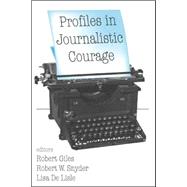| Preface | xi | ||||
| Part 1: Yesterday | |||||
|
3 | (8) | |||
|
|||||
|
|||||
|
11 | (8) | |||
|
|||||
|
|||||
|
19 | (10) | |||
|
|||||
|
|||||
|
29 | (8) | |||
|
|||||
|
|||||
|
37 | (8) | |||
|
|||||
|
|||||
|
45 | (10) | |||
|
|||||
|
|||||
|
55 | (12) | |||
|
|||||
|
|||||
|
67 | (12) | |||
|
|||||
|
|||||
| Part 2: Today | |||||
|
79 | (10) | |||
|
|||||
|
|||||
|
89 | (10) | |||
|
|||||
|
|||||
|
99 | (8) | |||
|
|||||
|
|||||
|
|||||
|
107 | (8) | |||
|
|||||
|
|||||
|
115 | (6) | |||
|
|||||
|
|||||
|
121 | (10) | |||
|
|||||
|
|||||
|
131 | (10) | |||
|
|||||
|
|||||
|
141 | (10) | |||
|
|||||
|
|||||
|
151 | (8) | |||
|
|||||
|
|||||
|
159 | (10) | |||
|
|||||
|
|||||
| Review Essay: Different Faces of Courage | |||||
|
169 | (4) | |||
|
|||||
|
|||||
| For Further Reading | 173 | (9) | |||
| Index | 182 |









